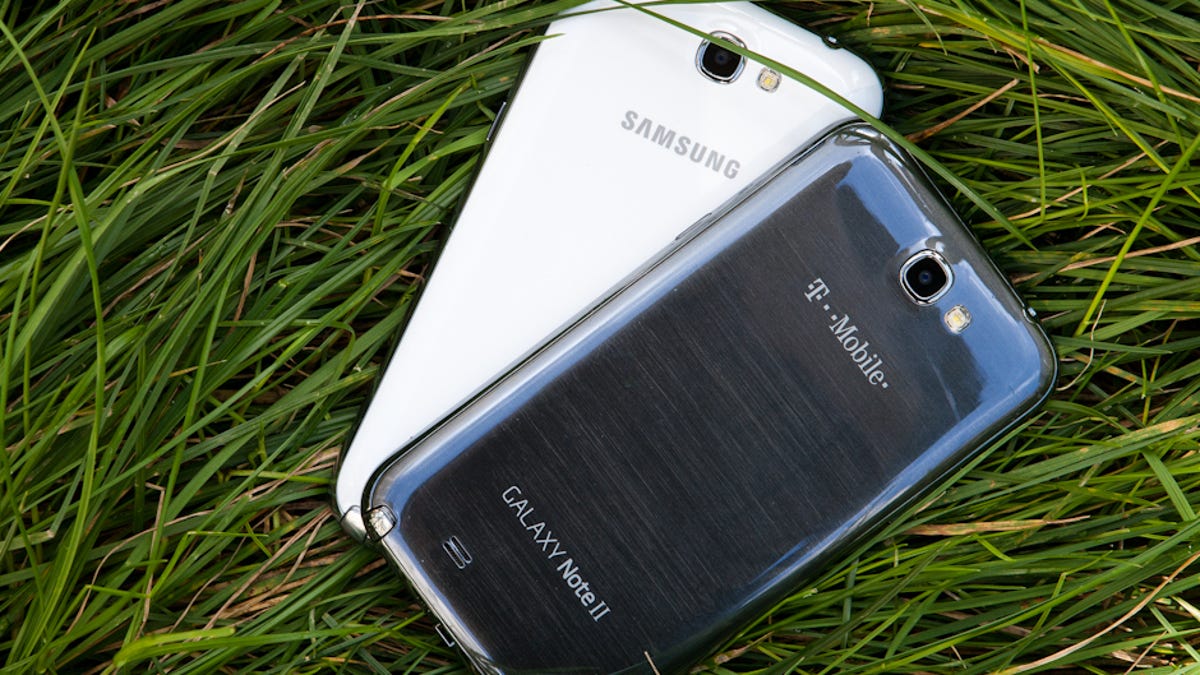T-Mobile's 4G LTE impresses in real-world tests (hands-on)
CNET compares T-Mobile's 4G LTE network against AT&T and Verizon on the Galaxy Note 2.
Two weeks ago, when T-Mobile announced that its 4G LTE had launched, CNET's own Brian Bennett gave the network a test run in New York across three handsets: the iPhone 5, the HTC One, and the BlackBerry Z10.
But as most of us know, the carrier's 4G LTE isn't actually live now in New York; it was turned on temporarily just for the press conference. Currently, if you want to experience T-Mobile's fledgling 4G LTE, you'll need to be in Baltimore; Houston; Kansas City, Mo.; Las Vegas; Phoenix; San Jose, Calif.; or Washington, D.C.
So that's what I did -- I headed to San Jose to measure data speeds under real-life circumstances. I used the same device, the Samsung Galaxy Note 2, across three different carriers, T-Mobile, AT&T, and Verizon. Each handset was wiped and reset before testing, and all tests were conducted in the afternoon on the same day.
All data points are in seconds, save for the Ookla results (which are in Mbps). I ran each task 10 times: five times inside a building and five times outdoors. The listed times are the averaged from the top five best times. Before each test, I quit all running apps and restarted the phone. Sites were loaded using Google's Chrome Web browser, and average download and upload speeds were measured using Ookla's Speedtest.net app. That being said, here are the stats below.
| T-Mobile | AT&T | Verizon | |
|---|---|---|---|
Credit: Lynn La/CNET
Despite keeping as many variables equal as I could, there are still plenty of other factors to consider here. AT&T and Verizon's networks are obviously older and available in more markets. And in addition to the variations you'll experience from different locations and times of day, it's also important to note that there are fewer people on T-Mobile's network.
As you can see, T-Mobile clocked in with impressively fast rates. T-Mobile is just getting started, and as it continues to expand its 4G network, so will the number of people using it. In addition, its recent acquisition of MetroPCS is expected to give its 4G LTE a boost.
As for the other carriers, AT&T was fast, but also had the most inconsistent speed times. Again, these averages were calculated using the top five times across all three carriers, but there were occasions when our AT&T Galaxy Note 2 would take over two minutes to load sites (especially The New York Times desktop site) for no apparent reason. I experienced some unusually slow times with the other two carriers once in a while, but not nearly as often as AT&T.
If you live in one of T-Mobile's seven 4G LTE cities, what can you tell us about your experience so far? Is it any different from before? Be sure to leave us a comment below.


